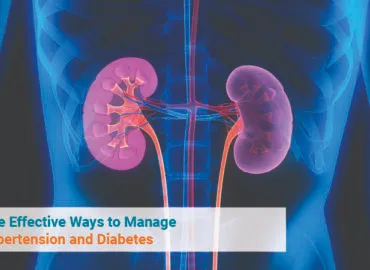Hemodialysis And Peritoneal Dialysis: Advantages And Disadvantages
Kidneys filter waste and fluid from your body, they equalize blood pressure and strengthen the bones. Kidneys balance the right amount of minerals in the blood and also create hormones that produce red blood cells. In some people, kidneys tend to fail and stop functioning and that is when dialysis is recommended. Dialysis is a treatment that takes over kidney functioning artificially. When to opt for dialysis depends on your age and the current health condition as suggested by your doctor.
Hemodialysis
There are two types of dialysis that can help:
Hemodialysis is where your blood is filtered outside your body, cleaned, and then restored to you. This procedure is typically done at a dialysis clinic or a hospital, where the blood is purified through a dialysis machine. The doctor makes access into your blood vessels through minor surgery to your arm in order to get your blood into the dialyzer.
Advantages of Hemodialysis
- Nurses carry out treatments for the patient
- Orderly contact with other hemodialysis patients and the medical staff
- Patients usually only have three dialysis appointments per week and rest for the other four days.
- Absolutely no need to carry the equipment or supplies to your home.
- In an emergency, medical help can be accessed quickly.
Disadvantages of Hemodialysis
- You must travel to a dialysis center at least three times a week.
- Patients may not be given the option to schedule their appointments.
- Permanent access will be required, generally in the arm for adults and the neck or chest area for children.
- Access sites carry out bacteria and viruses and run at a risk for infection
- Strict renal diet and fluid restrictions are required
Peritoneal Dialysis
Peritoneal dialysis is a way of dialysis that removes waste products from the blood when your kidneys fail to function. This form of dialysis can be done at home, at work, or even while travelling. Peritoneal dialysis is not recommended for everyone as you might need some kind of skill and knowledge to take care of yourself at home.
Advantages of Peritoneal Dialysis
- It gives continuous therapy, which acts almost like natural kidneys
- Fewer restrictions on your diet.
- Needle-free treatments.
- Travelling can be avoided to the dialysis center for treatments.
- You can have a flexible treatment schedule.
- The dialysis can be done even while sleeping.
- No travel restrictions.
Disadvantages of Peritoneal Dialysis
- It requires 7 days a week treatment at home.
- A permanent catheter is installed outside the body.
- Causes high risk of infection/peritonitis
- People experience weight gain along with a larger waistline.
- Might require ample storage space in your home for supplies
- One must be responsible and should be trained to perform this dialysis.
Each dialysis method has its own advantages and disadvantages but make sure you conduct adequate tests and consult doctors in order to understand which type of dialysis suits your health condition.

